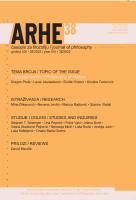Carl Schmitt and Friedrich Hayek on Democracy: Elective Affinities?
Carl Schmitt and Friedrich Hayek on Democracy: Elective Affinities?
Author(s): Fotini VakiSubject(s): Political Philosophy, Social Philosophy, Contemporary Philosophy, Philosophy of Law
Published by: Филозофски факултет, Универзитет у Новом Саду
Keywords: Liberalism; Neoliberalism; State of Exception; Democracy;
Summary/Abstract: The aim of the present paper is to disclose the structural affinities between Carl Schmitt and Friedrich Hayek regarding the concept of parliamentary democracy. Identifying Hayek’s neoliberal thinking with Schmitt’s theoretical justification of fascism would apparently be an a-historical overgeneralization. While Schmitt develops a model of absolute sovereignty relying on the sovereign’s decision on the state of exception, Hayek envisages the historical realization of those conditions allowing the market competition to flourish. Schmitt’s model subjugates market to an omnipotent state whereas Hayek views the latter as an engine abetting the free market competition. A closer reading, however, could discern affinities behind the seemingly opposed models of the two thinkers. Schmitt’s model of an emergency dictatorship and Hayek’s nomocracy are two different responses and attacks to the Left’s attempt to construct a democratic welfare state in the Weimar Republic and postwar Europe. Schmitt advocates the concentration of political power in a totalitarian state as the sole “remedy” to the democratic contamination of liberalism induced by the politicization of civil society. Similarly, Hayek castigates any state intervention taking the form of the welfare state but endorses a powerful state entrusted with the role of securing the conditions of market competition.
Journal: Arhe
- Issue Year: 2022
- Issue No: 38
- Page Range: 225-248
- Page Count: 24
- Language: English

